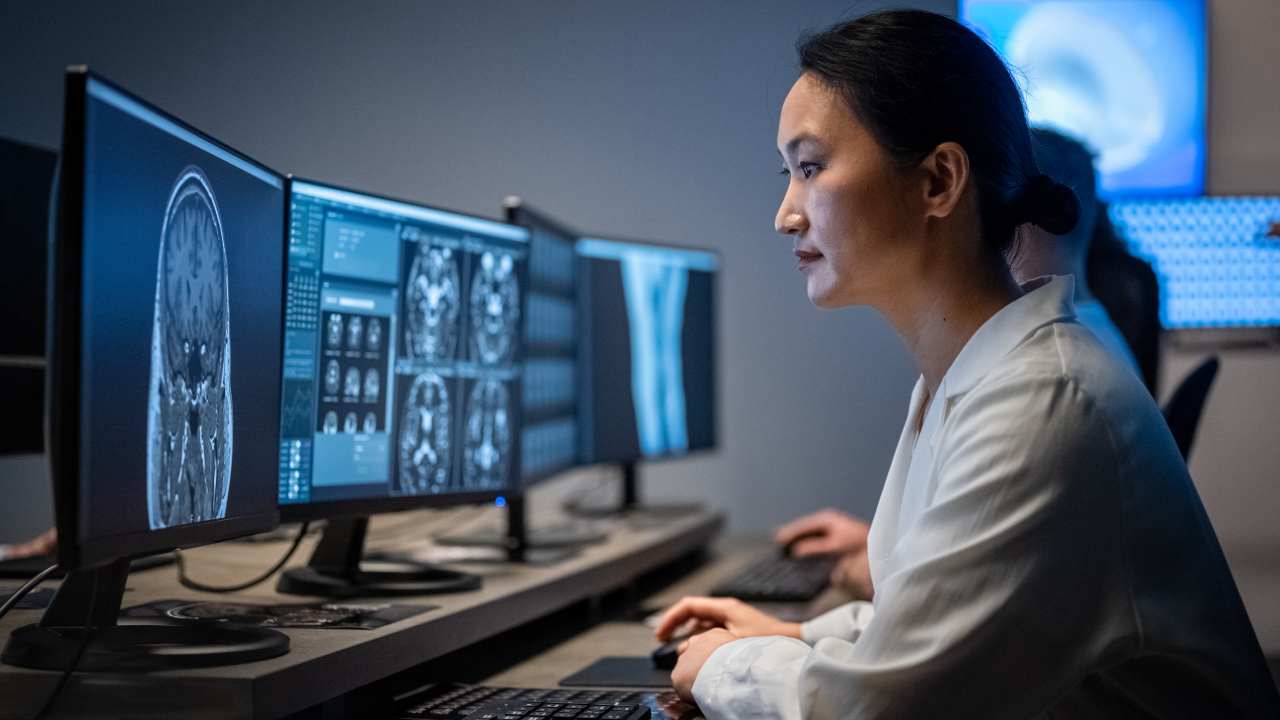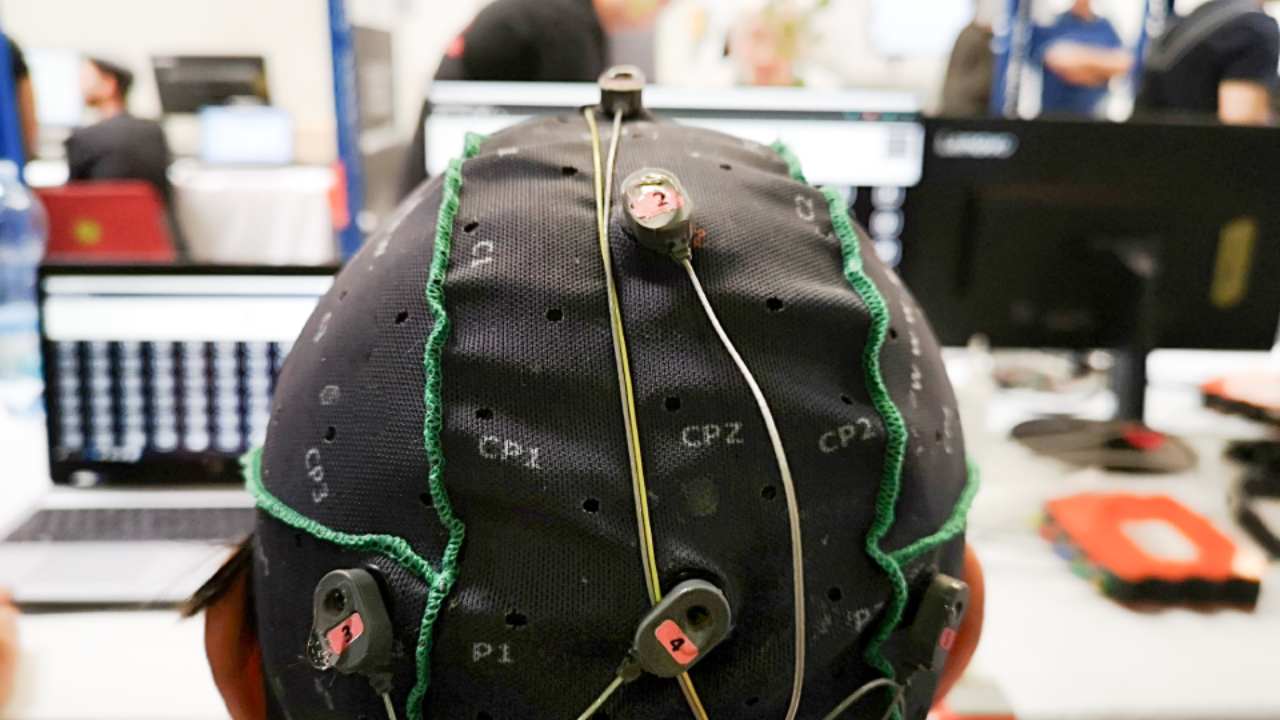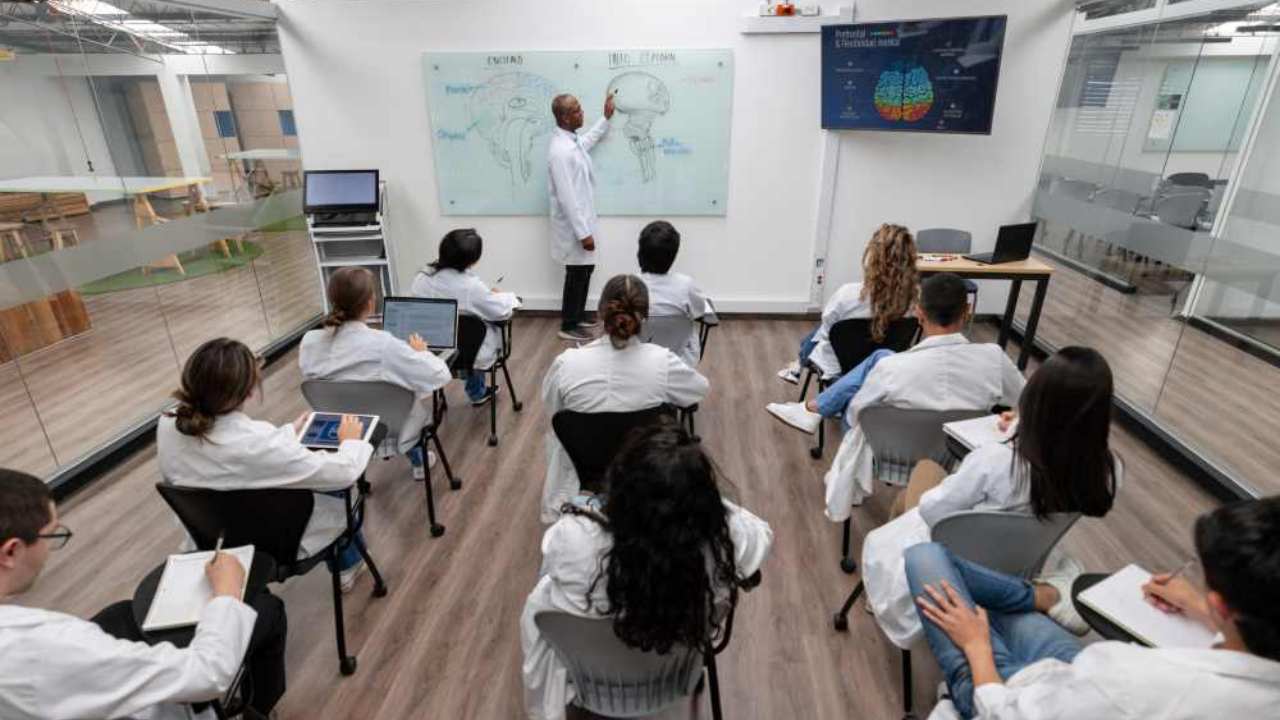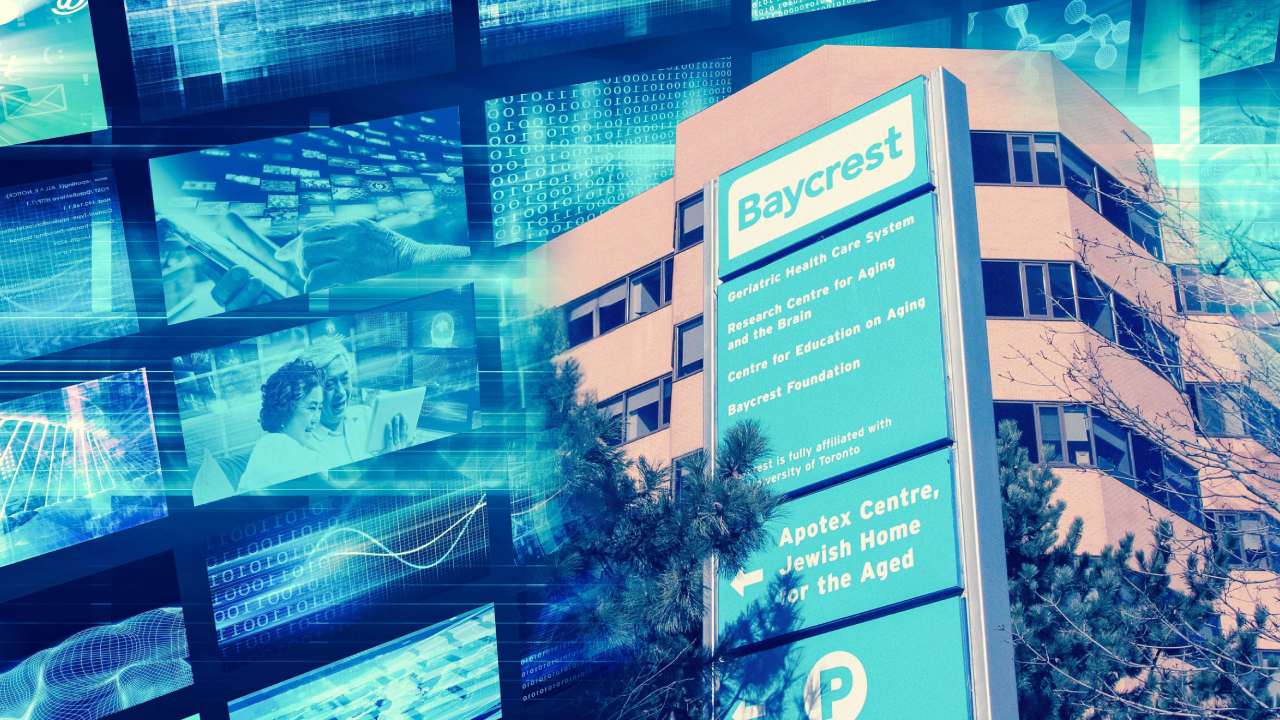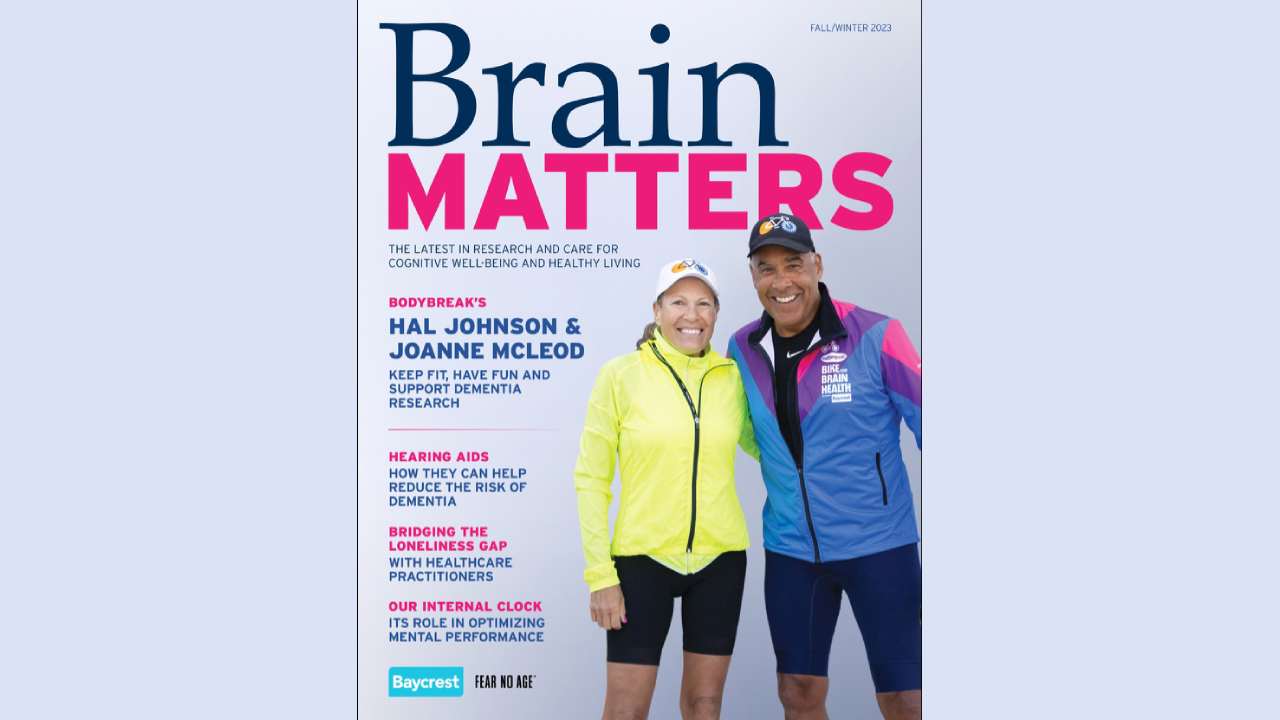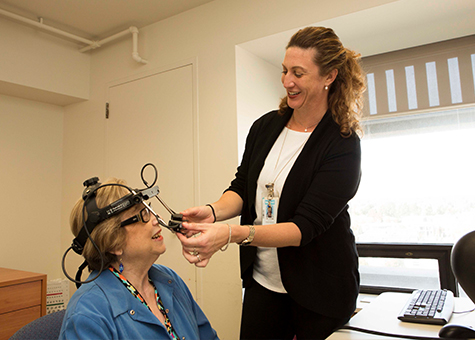 Dr. Jennifer Ryan is no stranger to paving her own road.
Dr. Jennifer Ryan is no stranger to paving her own road.
Coming from a household that predominantly worked in the construction industry, Dr. Ryan, a senior scientist at Baycrest’s Rotman Research Institute and Reva James Leeds Chair in Neuroscience and Research Leadership, was the first person in her family to pursue a career in science.
From there, her off-the-beaten-track mentality extended to her research. Dr. Ryan was one of the early researchers around the world to explore how eye movements offer insights into memory.
“My graduate supervisor was using eyetracking to understand memory since there was interest in using the technology as a new kind of polygraph, a more accurate marker of people’s knowledge,” says Dr. Ryan, who is also a psychology and psychiatry professor at the University of Toronto. “I found it quite fascinating that you could collect indicators of prior knowledge without asking people what they knew.”
Previously, eyetracking was mainly used to measure a person’s attention or how they were processing information around them. Dr. Ryan continues to use eyetracking as an alternate way to probe memory, which could change the way doctors evaluate an individual’s thinking and memory problems.
“One of the problems a polygraph has in a court of law is that we don’t have a great understanding of how someone’s deception leads to certain physiological changes in the body,” says Dr. Ryan. “To some extent, eyetracking has the same problem. We can see that people remember different things based on their eye movements, but that link between the systems is not particularly clear.”
Unlocking the eye-brain connection will be the key that opens the door to the development of eye-tracking cognitive assessments and catching Alzheimer’s disease earlier in its progression.
Dr. Ryan remains at the forefront of this field with a number of groundbreaking discoveries. Her team showed the first direct functional connection between the memory centre of the brain and the system responsible for our eye movements and how this link “breaks” as we get older, which helps explain greater forgetfulness as people age.
“These discoveries provide crucial evidence that back up the claims of whether an eye-tracking cognitive assessment can diagnose early signs of a memory disorder,” says Dr. Ryan. “Ongoing research into this connection brings us closer to achieving that goal.”
Beyond an earlier diagnosis, there are early signs that the eyes could also help with improving memory. One of her recently published studies uncovered that the brain relies on the eyes to enhance memory.
“By understanding how we naturally use eye movements to compensate for declining areas of the brain, we could tap into this strategy as an intervention to boost memory performance among healthy older adults and adults with memory disorders,” says Dr. Ryan.
Related Articles: Research



